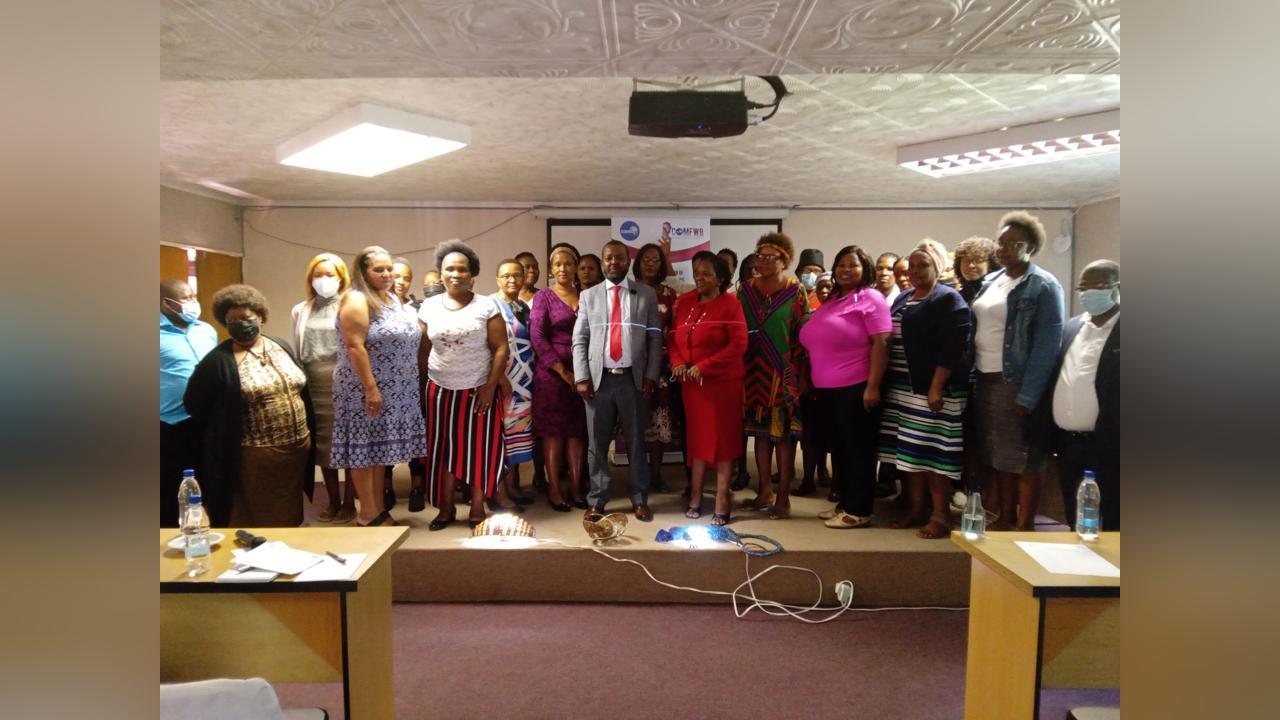Africa-Press – Eswatini. The comesa Federation of Women in Business (comfwb) Eswatini Chapter received funding of over E3 million (Euro150 000) directed to the beef production value chain from comesa and the European Union (EU).
The funding comes through the technical assistant facility, which is under the Common Market for Eastern and Southern Africa (comesa) regional enterprise competitiveness and access to markets programme (recamp) and has an overall objective to contribute to the deepening of regional economic integration in the comesa region and a specific objective to increase private sector participation in sustainable regional and global value chain. The facility is available every year for all comesa member States.
Speaking during the official opening of the feedlot management production value chain workshops yesterday, the Minister of Commerce, Industry and Trade, Manqoba Khumalo, mentioned that Food and Agriculture Organisation of the united nations (fao) Eswatini developing commodity value chains and the beef value chain has been selected as one of the pilot value chains and the value chain approach, which promoted inclusivity. Khumalo was represented by the Minister of Economic Planning and Development Dr Tambo Gina. He said although men would be involved, the main focus and target group was deliberately women and youth. The project would target the members of comfwb who were women in the beef value chain. Khumalo mentioned that the project would directly benefit 60 women smallholder farmers (and indirectly 800 women who will join later) to competitively participate in the beef feed lot farming in all the four regions of the country.
Supply
He said these women would breed their own cattle, which would later be taken to their different feedlots with the aim to supply all feed-lotters in the country with feedlot stock. “It will also benefit 60 women and youth who will be involved in the cattle feed production since the prices for animal feed have sky rocketed over the years,” said Khumalo. He also mentioned that for the first four cycles, the 60 women in the feedlot business would be provided with animal feed for their cows. He said the other 60 would be given farming inputs to produce the cattle feed to supply to the feed-lotters after the 4th cycle. “Moreover 30 women and youth will be capacitated on how to process the feedlot cattle feed,” the minister said. The minister highlighted that in non-market-oriented small-scale farming, most cattle were managed in extensive systems on common grazing land. He noted that farmers lacked secure land tenure and grazing pastures were increasingly disappearing due to the proliferation of homesteads on previously designated common pastures.
Contribution
He said supplementation of crop residues, fodder, and feed during the dry season was a huge challenge. He noted that despite women’s crucial contribution to agriculture and food security, due to traditional and customary patterns, women’s access to and control over water, energy, biodiversity and land remains lower than men. Khumalo said insecure land tenure limited the land user’s ability to develop, manage and upgrade livestock activities since it often translates into a lack of land for grazing and a lack of collateral for investment. Feedlot beef production presents itself as a possible solution to quite a number of challenges faced by women in beef production, this is because it eliminates the process of herding animals and there is control in backgrounding or growth phase, as well as the fattening or finishing phase.
Khumalo said the current situation on the ground was that there were 60 women who were in all the four regions of the country, and it was anticipated that, by the end of project, there would be an increased number of women selling individually to three abattoirs, namely Eswatini Meat Industries (smi), Eswatini Meat Wholesalers and the Mbabane Municipal Abattoir.
He said because of the high demand locally, the women desired to satisfy the local demand while equipping themselves on quality standards and other skills that were mandatory for the export market.
Profits
Now, the average weight that the women make is 200kg and the target is to sell when the animals are 300kg so that they set a good price hence good profits. The challenges they face include inadequate rations for the animals, which causes the animal to gain below 1.7kg per day, which is the recommended weight gain. There currently exists a high demand for beef in the country for instance, the Mbabane Abattoir alone demands 100 animals per month, whereas each of the women sell between five to about 20 and these figures fluctuate. Meanwhile, Chairperson of the comfwb Eswatini chapter Thandi Motsa appreciated that government was implementing the treaties signed with comesa and eu. She said such was encouraging especially women to work harder in improving the country’s economy. Motsa then encouraged women to join them as the comesa comfwb Eswatini Chapter.
For More News And Analysis About Eswatini Follow Africa-Press







